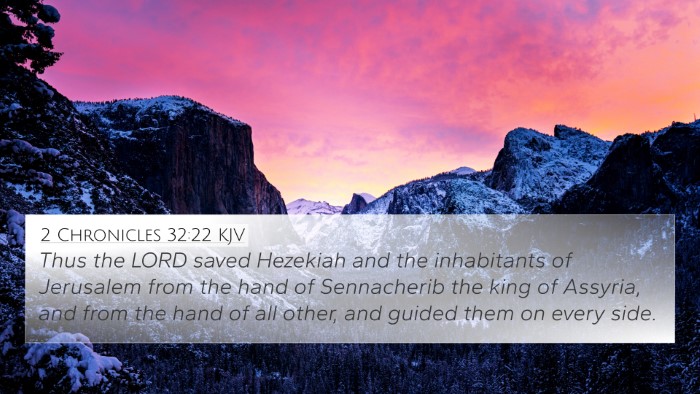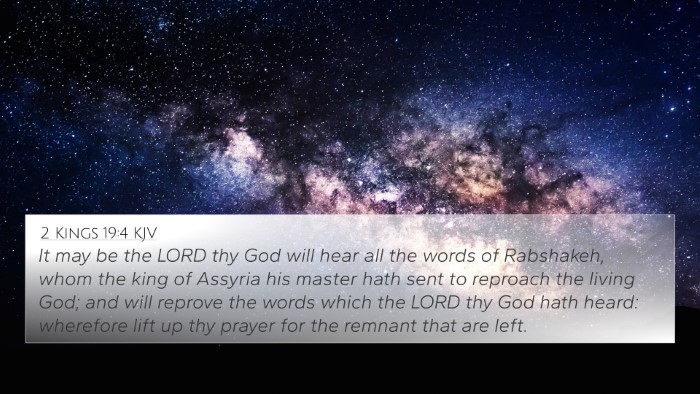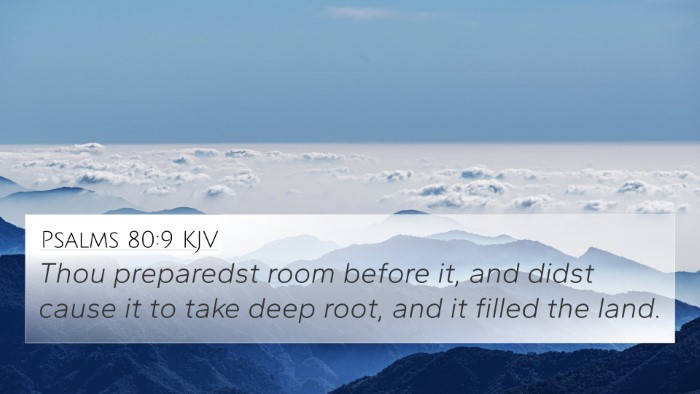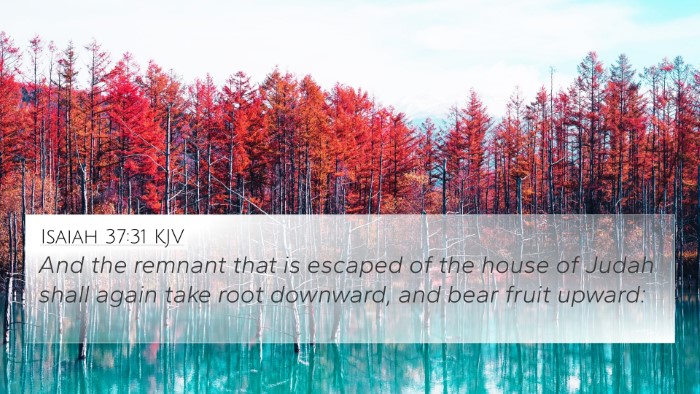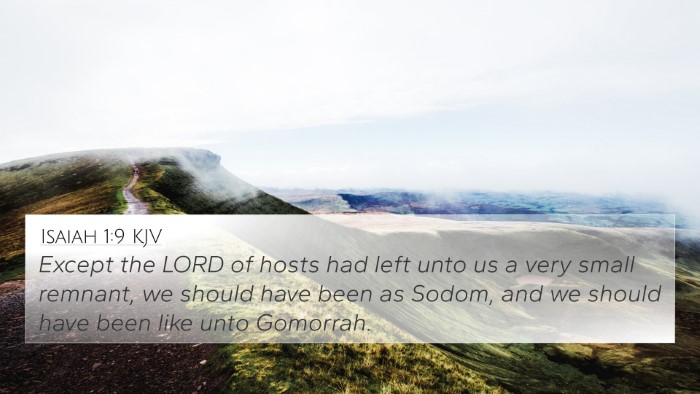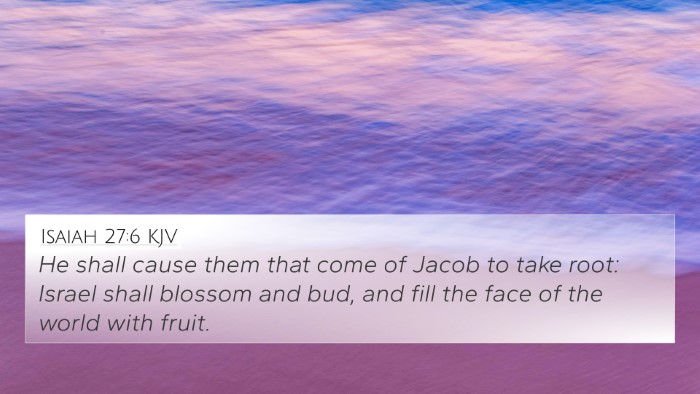Understanding 2 Kings 19:30
Verse Text: "And the remnant that is escaped of the house of Judah shall again take root downward, and bear fruit upward."
Overview
The verse in question, 2 Kings 19:30, offers significant insights into God's assurance of restoration and growth for the remnant of Judah amidst difficult circumstances. This verse represents a powerful promise of hope and renewal following the dire consequences of impending judgment and exile. The insights gleaned from public domain commentaries such as those by Matthew Henry, Albert Barnes, and Adam Clarke shed light upon its meaning.
Commentary Insights
-
Matthew Henry:
Henry emphasizes the theme of divine restoration that is central to this verse. He notes how the 'remnant' signifies a small but faithful group that will be preserved by God's grace, illustrating His mercy even in judgment. The imagery of taking root and bearing fruit symbolizes stability and prosperity after a season of turmoil.
-
Albert Barnes:
Barnes draws attention to the metaphor of roots and fruits. He explains that the root signifies deep faith and stability: "To take root downward" means to establish one's faith firmly in God's promises, while "bear fruit upward" indicates the blessings and works that will flow from such a foundation. This illustrates a life that is connected to God and active in His service.
-
Adam Clarke:
Clarke adds that this promise of growth is not only for the physical descendants of Judah but also applies to the spiritual seed—a reference to believers in God throughout ages. He underlines the transformation that happens when one fortifies their faith in adversity, promising a bountiful outcome. He sees this verse as a catalyst that connects the faithful of Judah to a broader context of divine support.
Thematic Connections
This verse beautifully encapsulates themes of restoration and faithfulness which resonate throughout the Scriptures. Below, we explore how this verse connects with other biblical texts and its significance in the larger narrative of God's relationship with His people.
- Isaiah 37:31-32: Similar to this verse, it speaks of the remnant of Judah and their promised growth and safety, connecting the sentiment of restoration with prophetic assurance.
- Jeremiah 24:6: This verse addresses God's protective oversight of His people, affirming the idea that after adversity, something beautiful can emerge similar to the ‘good figs’ representing the faithful remnant of Judah.
- Romans 11:5: Paul references a remnant according to the election of grace, emphasizing that God's mercy continues to preserve a faithful community, echoing the message of hope found in 2 Kings 19:30.
- Galatians 6:9: The connection between taking root in faith and bearing fruit aligns with the encouragement to not grow weary in doing good, knowing that the faithful will reap a harvest in due time.
- John 15:5: Here, Jesus teaches about abiding in Him (the true vine) which connects to the theme of roots and fruits, delineating the necessity of a strong bond with God for spiritual productivity.
- Matthew 13:23: This parable emphasizes the concept of good soil leading to fruitfulness, directly correlating to the idea of roots established in God's truth.
- Hebrews 12:15: This verse calls for the vigilance in faith which indicates that believers should strive to take root deeply in God’s grace and bring forth the fruits of holiness and peace.
Practical Applications
Understanding 2 Kings 19:30 not only offers a theological perspective but also encourages practical faith applications:
- Deepen Faith: Establish yourself in God's Word to foster a strong root system that can sustain through trials.
- Bear Fruit: Look for ways to actively serve others and reflect God’s light, knowing that from deep roots comes fruitful living.
- Community Support: Encourage fellow believers, drawing strength from shared struggles and victories, acknowledging the unity of the Christian faith.
Conclusion
2 Kings 19:30 serves as a powerful reminder of God’s faithfulness to His people and His promise of restoration despite challenges. By connecting this verse with others, we gain a holistic understanding of the Biblical narrative, facilitating a deeper appreciation for God’s unwavering promise of hope. The lessons within this verse and its related scriptures underscore the importance of faith, community, and divine providence in fostering spiritual growth.
Exploring Bible Cross-References
If you are eager to explore more about Bible verse connections, consider utilizing tools such as a Bible concordance and a Bible cross-reference guide. These resources can enhance your cross-referencing Bible study by helping you discover cross-references for various scriptures and offering insights into how different verses interact with each other. Engaging in a comparative study not only lays the groundwork for personal spiritual growth but can also enrich sermon preparation, making your studies dynamic and interconnected.



